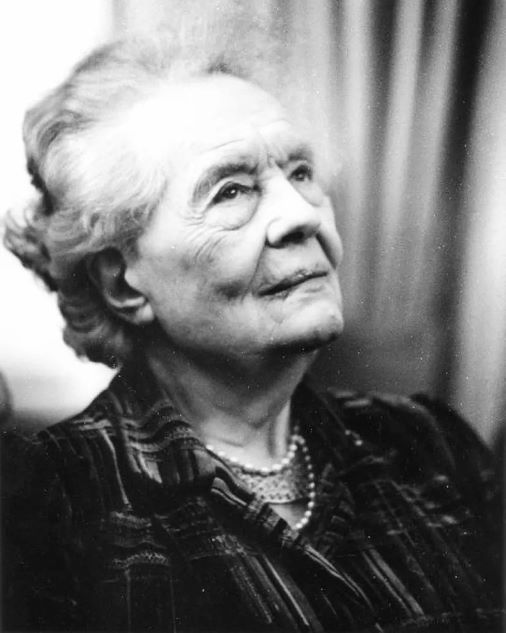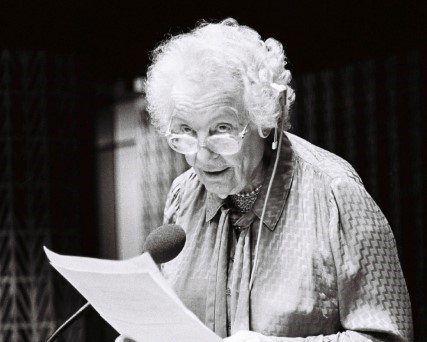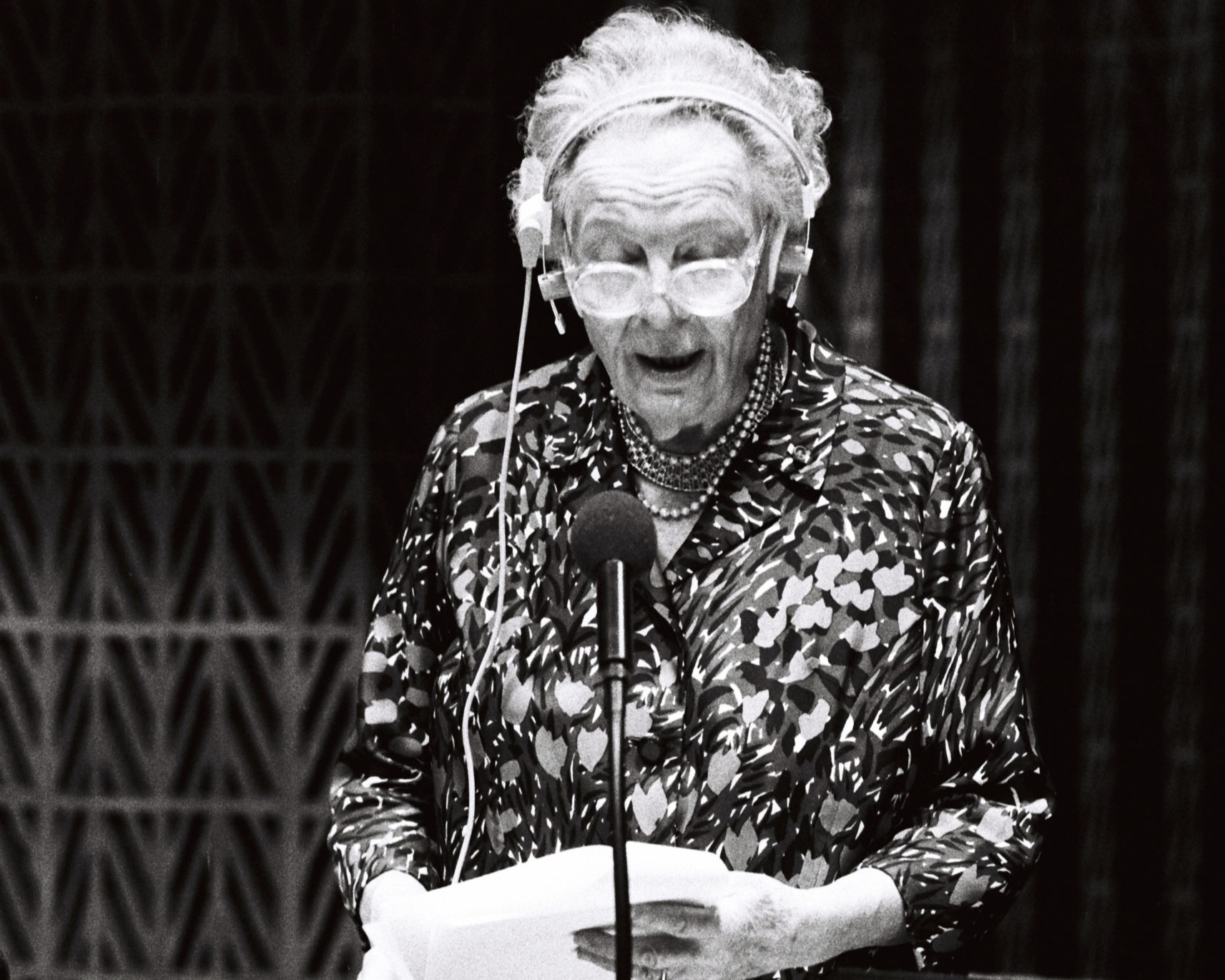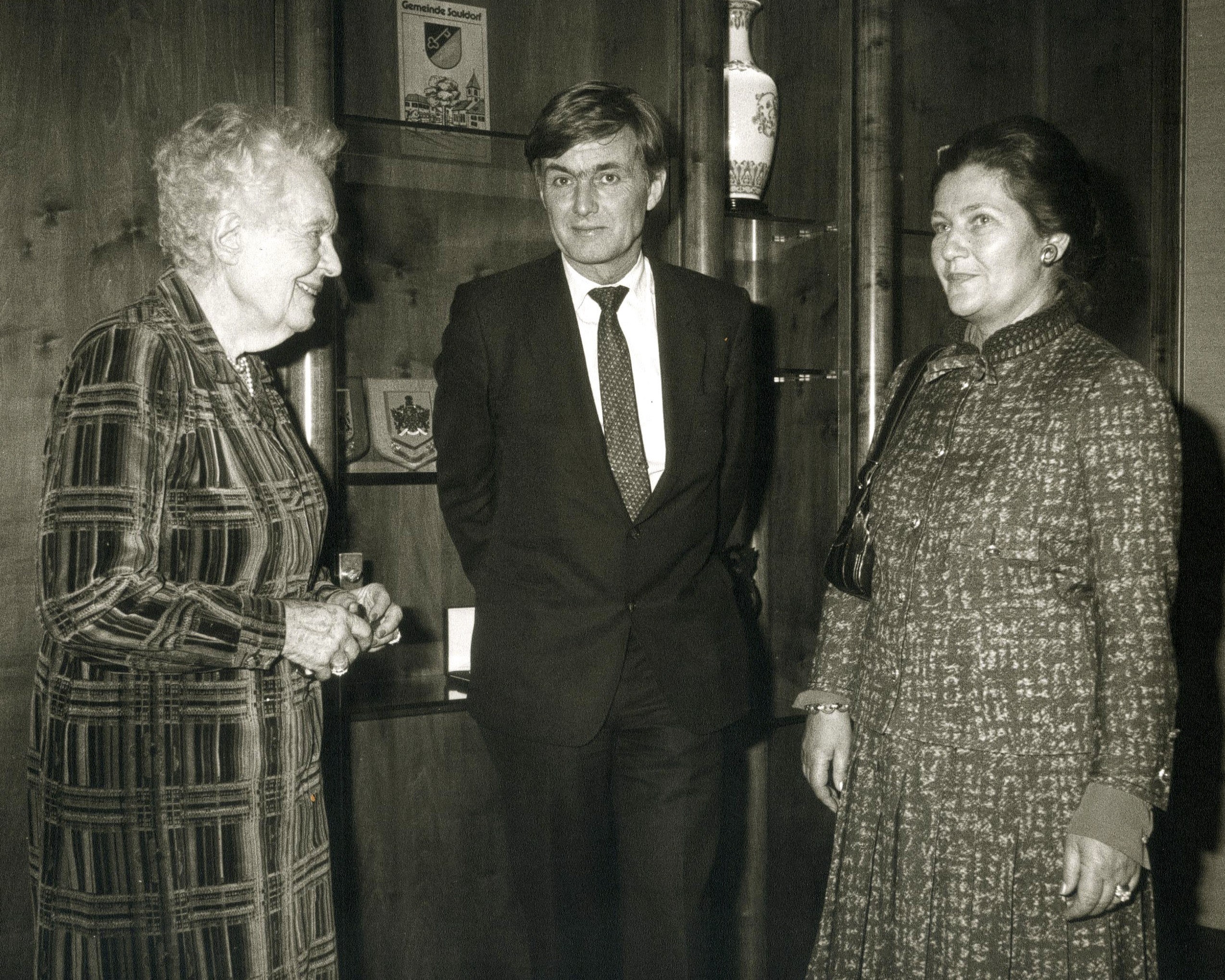Full name:
Louise Weiss

"Lifelong champion of European values and women's rights"
Louise Weiss
25 January 1893, Arras, France
26 May 1983 (aged 90), Paris, France
- Louise Weiss

Louise Weiss, a member of the European Parliament, elected by direct universal suffrage, 1979

Louise Weiss during the plenary session in Strasbourg, September 1980

Louise Weiss, Piet Dankert, Simone Veil, the European Parliament, 1982